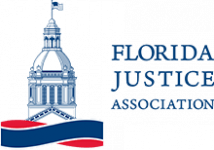Why Are Florida Auto Insurance Rates So Expensive?
Between a large number of uninsured drivers, Florida’s unique no-fault insurance system as well as Florida’s high rate of car accidents, Florida car insurance premiums are among the highest in the nation. The factors outlined below explain why Florida’s residents having rising insurance costs and why car insurance in Florida can be so expensive.
In the event you have been injured in a car accident, the top-rated Florida personal injury attorneys at The Fran Haasch Law Group Accident & Injury Lawyers have years of experience advocating for accident victims and understand the impact of auto insurance costs in Florida. We will help you file a personal injury claim and negotiate with the liable party on your behalf. Schedule a free consultation with an experienced Florida car accident lawyer at The Fran Haasch Law Group Accident & Injury Lawyers to learn more about how we can help with your auto insurance claims.

Why Is Car Insurance So Expensive In Florida?
According to the latest data from the National Association of Insurance Commissioners, Florida ranks as one of the country’s most expensive states for car insurance. Florida has consistently had some of the highest car insurance premiums in the nation for several years now.
But why are Florida’s car insurance premiums higher than the national average? In order to understand this, we need to first look at the national average for car insurance costs and then delve into some factors specific to Florida that contribute to higher insurance costs.
Understanding Average Car Insurance Premiums Nationally
In 2024, the national average for car insurance premiums is projected to be approximately $1,670 per year for full coverage. This figure represents a slight increase from previous years, attributed to inflation, rising vehicle repair costs, and increased claims frequency. However, it’s important to note that actual premiums may vary significantly based on individual factors, including driving history, location, age, and the type of vehicle insured. Insurance providers also consider broader economic trends and changes in state-level insurance regulations when setting their rates.
How Much Is the Average Florida Car Insurance Premium in 2024?
In 2024, the average car insurance premium in Florida is estimated to be approximately $2,775 per year for full coverage. This figure reflects the persistent trend of high insurance costs in the state, driven by factors such as high rates of uninsured drivers, frequent weather-related incidents, and a dense population contributing to increased accident claims. Furthermore, Florida’s unique no-fault insurance laws and high litigation costs also play significant roles in inflating premiums compared to the national average. As a result, Florida drivers often find themselves paying significantly more for car insurance than drivers in many other states.

Factors That Contribute To Florida’s High Car Insurance Rates
Several factors contribute to Florida’s high auto insurance rates. Some of these include:
High Population Density
With over 21 million residents, Florida is one of the most populous states in the country. This means more cars on the road and a higher likelihood of accidents, which translates to higher premiums for car insurance in Florida.
High Number of Tourists
Florida is a popular tourist destination, with millions of visitors visiting its beaches and attractions every year. These tourists bring their vehicles or rent cars while there, contributing to the already high number of cars on the road.
High Number of Uninsured Drivers
Florida has one of the highest rates of uninsured drivers in the country. This means that if you are involved in an accident with an uninsured driver, your own auto insurance will have to cover the costs, leading to higher premiums for all Florida drivers.
Severe Weather
Florida is known for its severe weather events, such as hurricanes and tropical storms, which can cause significant damage to vehicles. This results in more claims being filed and higher Florida car insurance rates to compensate for the increased risk.
No-Fault Insurance Laws
Florida operates under a no-fault insurance system, meaning that each driver’s insurance company is responsible for paying their own medical bills and damages after an accident, regardless of who was at fault. This can lead to higher insurance rates as insurers take on more risk.
The Impact of Inflation on Car Insurance Rates in Florida
Inflation plays a significant role in the rising cost of car insurance in Florida. As inflation rates increase, the costs associated with vehicle repairs, medical expenses, and overall claim settlements also rise. Insurance companies, in turn, adjust their premiums to account for these heightened expenses, leading to higher costs for policyholders. In Florida, where the cost of living is already substantial, inflation further exacerbates the disparity between state and national average insurance rates. Additionally, inflation affects the operational costs of insurance companies, like salaries and administrative expenses, which are ultimately passed on to consumers. This economic factor is an unavoidable component contributing to Florida’s already challenging car insurance landscape.
High-Risk State
Florida’s designation as a high-risk state for car insurance stems from a combination of factors, each contributing to elevated insurance premiums.
Vehicle Theft in Florida
Vehicle theft is another significant factor contributing to Florida’s high auto insurance premiums. Florida consistently ranks among the top states in the nation for vehicle theft incidents, with both metropolitan and rural areas experiencing these crimes. High rates of vehicle theft not only result in financial losses for vehicle owners but also increase the number of insurance claims filed, which, in turn, drives up insurance costs for all drivers in the state. Insurance companies view areas with high theft rates as riskier, prompting them to charge higher premiums to cover potential losses. The prevalence of vehicle theft in Florida highlights the need for enhanced preventative measures, such as advanced security systems and increased community vigilance, to mitigate this issue and potentially bring down insurance costs.

Impact of Uninsured Motorists on Florida’s Car Insurance Premiums
The prevalence of uninsured motorists in Florida significantly impacts auto insurance premiums across the state. With Florida ranking as one of the top states for uninsured drivers, insurers have to account for the added risk this poses.
Insured Drivers Bear the Financial Burden
When an accident occurs involving an uninsured driver, insured drivers often bear the financial burden through their own policy’s uninsured motorist coverage. This kind of coverage compensates for damages and injuries caused by drivers who lack insurance, leading to higher claims and payouts from insurance companies. Consequently, insurers raise premium rates to mitigate these risks and potential losses.
Unpredictability of Uninsured Motorists
Additionally, the unpredictability associated with uninsured motorists adds another layer of complexity to risk calculations, propelling costs higher for everyone. This situation underscores the need for more effective measures to enforce insurance coverage requirements in Florida, which could help ease the burden on insured drivers and gradually stabilize or reduce premium costs statewide.
Does My Car Insurance Policy Include Coverage for Uninsured Motorists?
Generally, a standard auto insurance policy in Florida will not include coverage for incidents with uninsured motorists. While the legal expectation is that every driver has insurance coverage, the truth is that some do not. If you are in an accident with an uninsured motorist and you do not have supplemental coverage, your insurance provider is left with very few options on how to help get you money for expenses, repairs, and other costs incurred.
Typically, if you are in an accident and you file a claim, your insurance provider will pay the damages and costs. However, every policy has a limit on how much it pays out. If the costs of your damages exceed your coverage, then the at-fault driver’s insurance provider begins to cover those costs. If that driver has no insurance, all the remaining costs will be paid out of your pocket. That’s why it is recommended to obtain a supplemental policy, or an additional item on your standard policy to protect against uninsured motorists.
Understanding No-Fault Insurance in Florida
No-fault insurance is a system designed to simplify and expedite the compensation process after car accidents by reducing dependency on proving who was at fault. In Florida, this system mandates that each driver’s insurance company covers their own medical expenses and damage costs irrespective of who caused the accident.
Personal Injury Protection (PIP) Insurance
Florida’s no-fault insurance rules require that each driver carry insurance coverage for medical bills, lost wages, and other accident-related expenses through PIP insurance. PIP is mandatory for all drivers in Florida, with a minimum requirement of $10,000. While the no-fault system aims to minimize lengthy legal battles and ensure swift payouts, it does contribute to higher insurance premiums as insurers bear more risk. Additionally, due to fraudulent claims and abuse of PIP benefits, insurers face increased costs, which are then passed on to consumers. Understanding this system is crucial for Florida drivers, not only to ensure compliance with state laws but also to recognize the implications it has on their insurance expenses.
National Insurance Companies
Several prominent national insurance companies provide a range of policies across various states, catering to diverse customer needs. These companies, known for their stability and comprehensive coverage options, include State Farm, Geico, Progressive, Allstate, and United Services Automobile Association (USAA). State Farm is recognized for its extensive network of agents and personalized customer service, making it a popular choice for those seeking local assistance. Geico stands out for its competitive rates and user-friendly online services, allowing policyholders to manage their insurance conveniently. Progressive has gained acclaim for its innovative offerings, such as usage-based insurance programs that reward safe driving habits. Allstate is known for its robust support and coverage features that cater to a wide array of policyholder needs. Lastly, USAA provides insurance primarily to military members and their families, offering specialized benefits tailored to their unique situations. These national insurers play a pivotal role in shaping the landscape of the auto insurance industry, providing reliable options for millions of drivers across the country.
Seeking Legal Assistance after a Florida Car Accident
If you’ve been involved in a car accident in Florida and sustained injuries, navigating the complexities of legal claims and insurance processes can be overwhelming. The Fran Haasch Law Group Accident & Injury Lawyers, specializing in accident and injury cases for Florida residents, offers professional legal assistance to help you secure the compensation you deserve. Our experienced lawyers understand the intricacies of Florida’s car insurance laws and are committed to advocating for your best interests. Whether dealing with medical bills, lost wages, or negotiating with insurance companies, The Fran Haasch Law Group Accident & Injury Lawyers strive to make the legal journey as smooth as possible for our clients, ensuring you can focus on recovery. Contact us today for a free consultation.












